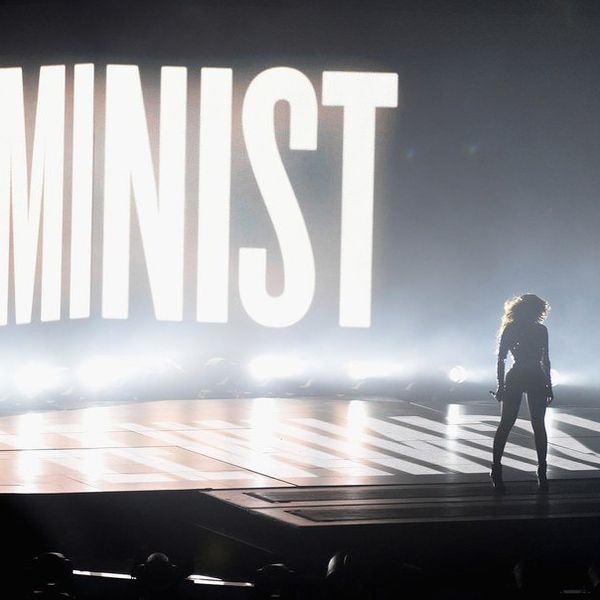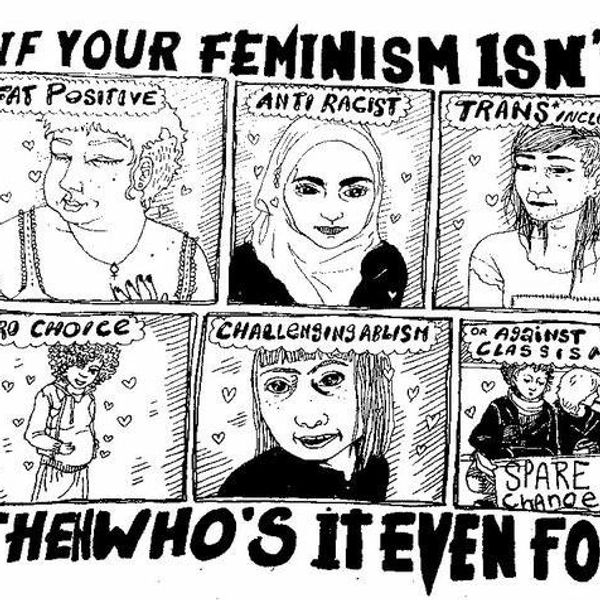I'm not a feminist-I don't hate men!
I've heard this so many times before. Girls saying they would never identify as a feminist because they don't hate men, as if absolutely despising men was a requirement for feminism. I've known boys who wouldn't date feminists because they perceived them as too aggressive. The idea that feminists hate men has been an idea circulating since the 1960s. And while it's true that there are some feminists who hate men, that's certainly not true for all feminists. Feminists care about equality, and equality effects both men and women. I'm a feminist and I care about men. Here are some men's issues that feminists care about:
1. Contraceptives for men
Women have a wide variety of contraceptives to choose from, including IUD, The Pill, condoms, and various shots. Many of these types of birth control are reversible. Men, however, have 2 main forms of birth control: condoms or vasectomies. Condoms are convenient for occasional sexual encounters, but they're not appropriate for long-term use. Vasectomies are long-term, but they're not reversible. Men should have access to long-term, reversible birth control.
2. Body Issues
While body image issues aren't as prevalent for men, they are certainly worth noting. Most men's magazines feature a tall, muscular man with large biceps and impeccably chiseled abs. These standards are not realistic for everyone, and could cause unhealthy body image in men. Men don't need to be ripped to be considered manly. Muscular men, thin men, chubby men, and men of all sizes are valid.
3. Race and men
Standards of masculinity can be harmful, especially for Asian, black, and Latino men. Asian men are stereotyped as asexual, weak, and undesirable, whereas black men are viewed as sexual, aggressive, and violent. These stereotypes are perpetuated in many movies and TV shows. As with any stereotypes, these ideas are harmful for people who don't fit the mold. Ideas like this deny men of color of their individuality. Not every black man is aggressive and athletic, and not every Asian man is quiet and studious. While these stereotypes are unfair, they are also the standards which many men aspire to live up to. Sometimes men impose these ideas on themselves, changing their behavior just to be seen as more acceptable. Men may act differently in order to fit in, and those who don't fit the mold are rejected.
4. Transgender men
FtM (female-to-male) transgender individuals deal with unique struggles. Many transgender men still have periods and struggle getting access to pads and tampons. Trans men are greatly affected by bathroom laws. Trans men may still have breasts, wider hips, and high-pitched voices and struggle with body image problems. Society defines a man as someone tall, muscular, hairy, and with a deep voice. When someone who identifies as male doesn't fit this mold, we tend to reject this person. As a society, we need to change our idea of what it means to be a man.
These are just a few examples of men's issues that feminists care about. Feminists care about the ways that toxic masculinity affects men and women. So no, feminism is not about women having superiority over men. Feminism is about equality. Feminism is about understanding sexism. Maybe if more people understood this, more people would identify as feminists.





















